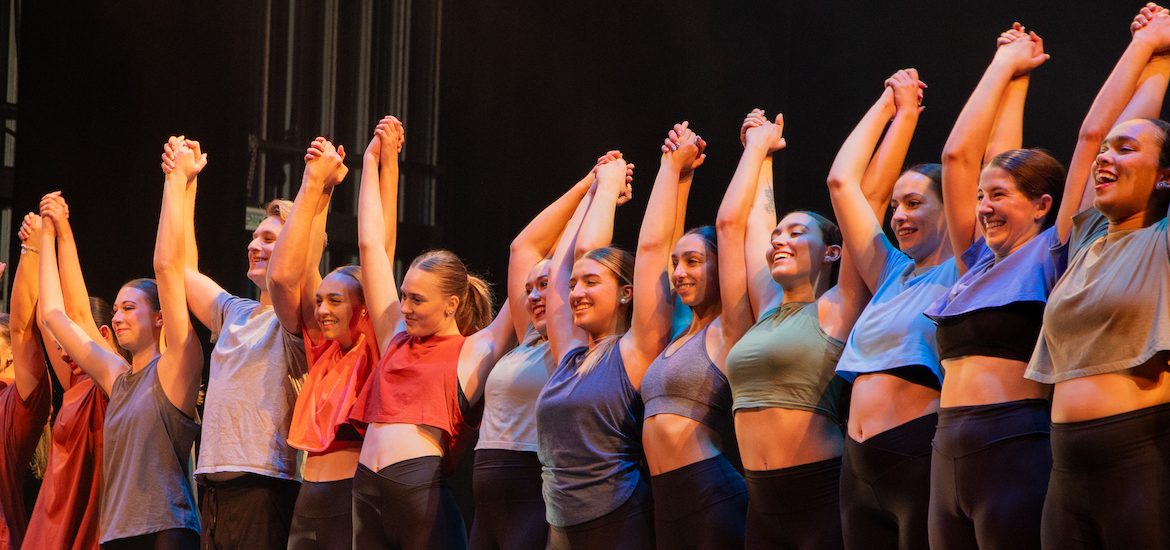Rowan University’s Dance Extensions Provides Stage for Student Voices, Movement & Meaning Both dance majors and dancers pursuing other majors express themselves creatively and keep up with their dance training through our on campus contemporary dance company, RU Dance Extensions. A student-run contemporary dance company, RU Dance Extensions promotes dance as art, with assistance from […]
Student Activities
How One Student Leader Revitalized a Student Organization
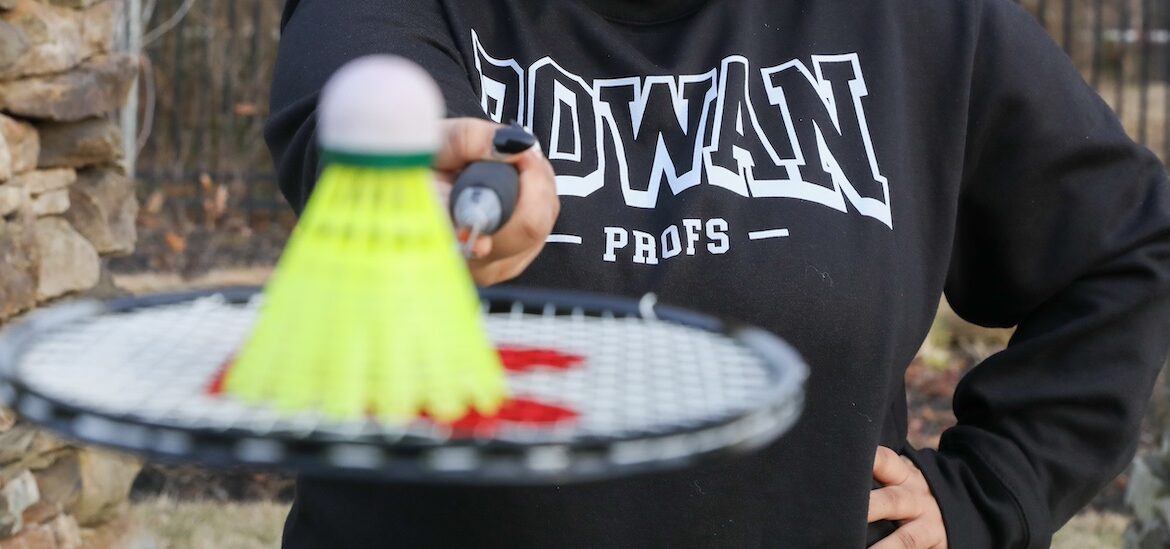
From No Funding to “Recreational Club of the Year” In this first person perspective piece, the president of the badminton club at Rowan University shares how she dedicated herself to succeeding in breathing new interest in the student club. My name is Medha Dabral and I am a current third-year Biological Sciences major with a […]
Student Government President Shares Why He Takes Classes Online
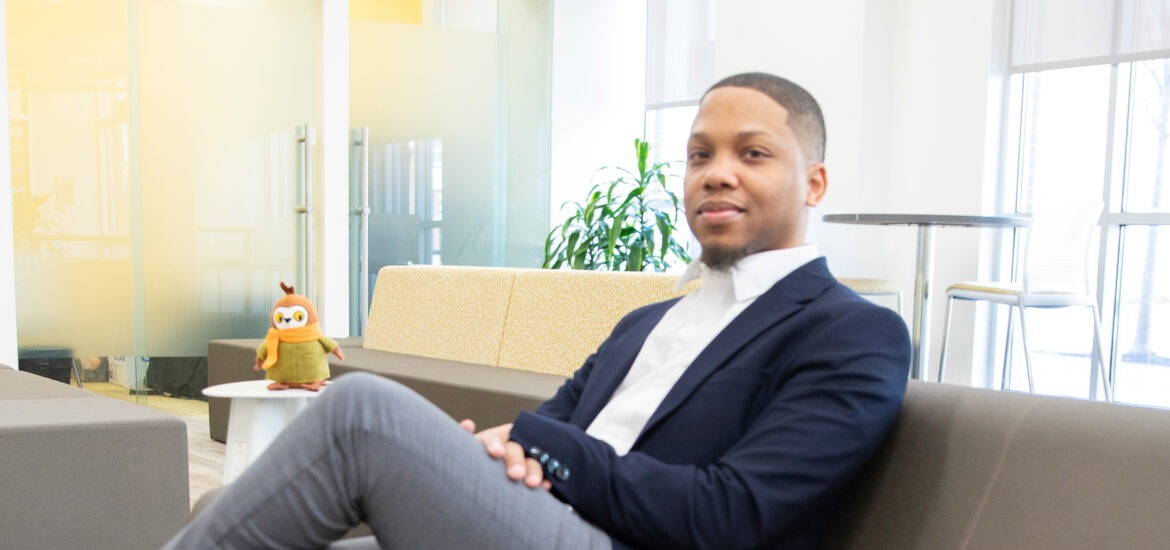
Rowan University Campus Leader Prefers Online Classes Rowan University senior Zackary Brown, a double major in both philosophy and public relations, will graduate this spring. This year Zackary stepped into the most impactful, and important, student leadership role on campus: that of student body president (SGA). Not only has he taken on significant leadership responsibilities, […]
Marching Band, Episode 3: Building A Band [VIDEO]
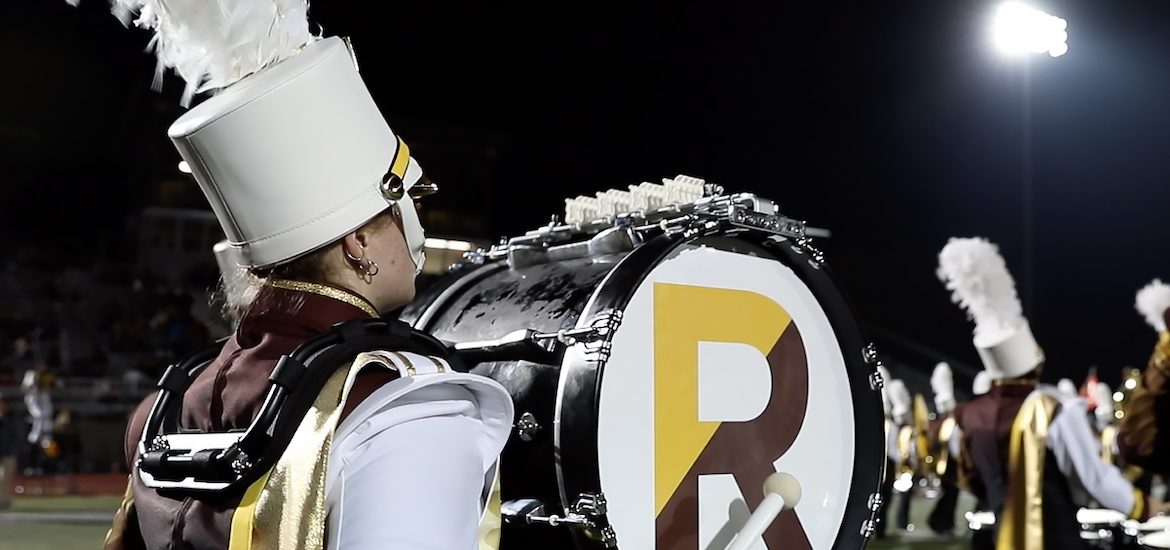
Rowan University’s Newly Created Marching Band Gives All Students the Opportunity for Self-Expression How did Rowan’s Marching Band “Pride of the Profs” come to be? In this video, you will hear from the Dean of the College of Performing Arts Richard Dammers, benefactor John H. Martinson and Director of Band Megan Cooney. Check it out […]
Biological Sciences Major Grows Passion for Research
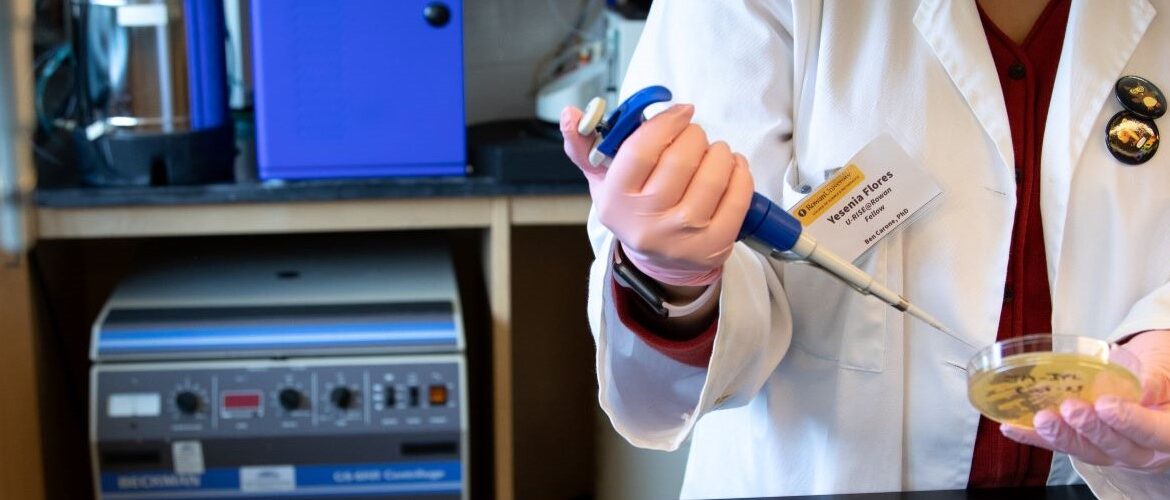
One Student’s First-Year & Sophomore Year Research Opportunities & Campus Involvement at Rowan University By the end of his first year at Rowan University, biological sciences major Brian Libby of Audubon, NJ (Camden County) had already accrued significant hands-on experience with research, and landed a summer position with faculty as an undergraduate research assistant. That […]
Going Away to College Close to Home: Mantua Resident
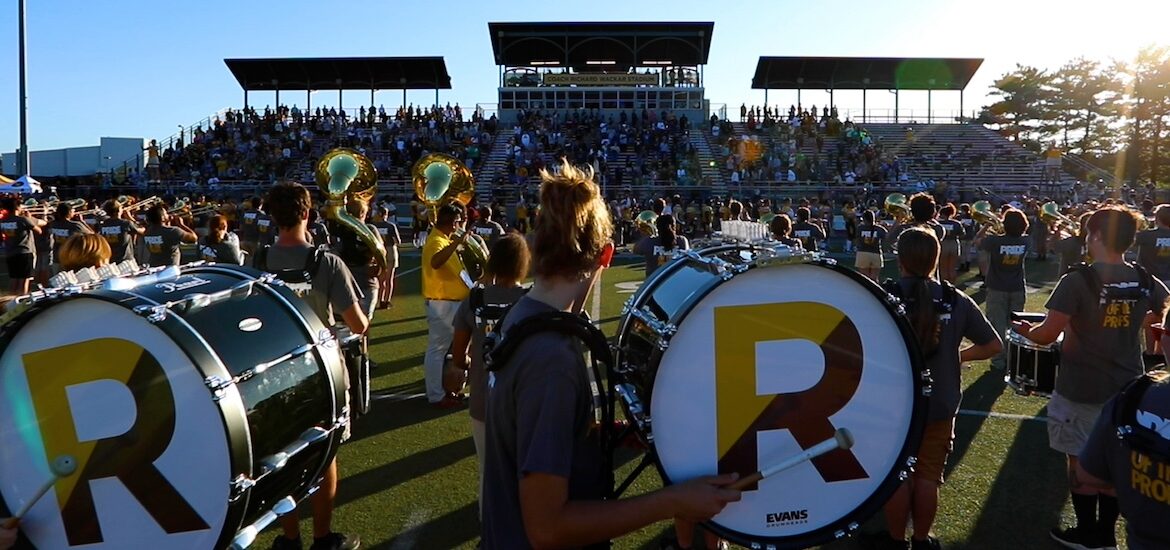
A Brief Conversation with Community Assistant, Student Government AVP & Admissions Ambassador Emma R. [Fall 2024 update – congratulations to Emma, who graduated and accepted a systems engineering position in Rhode Island.] Even though Emma R. of Mantua, NJ (Gloucester County) lives within driving distance of Rowan University, she and her family decided that Emma […]
25 Favorite Rowan Clubs from a Senior Point of View
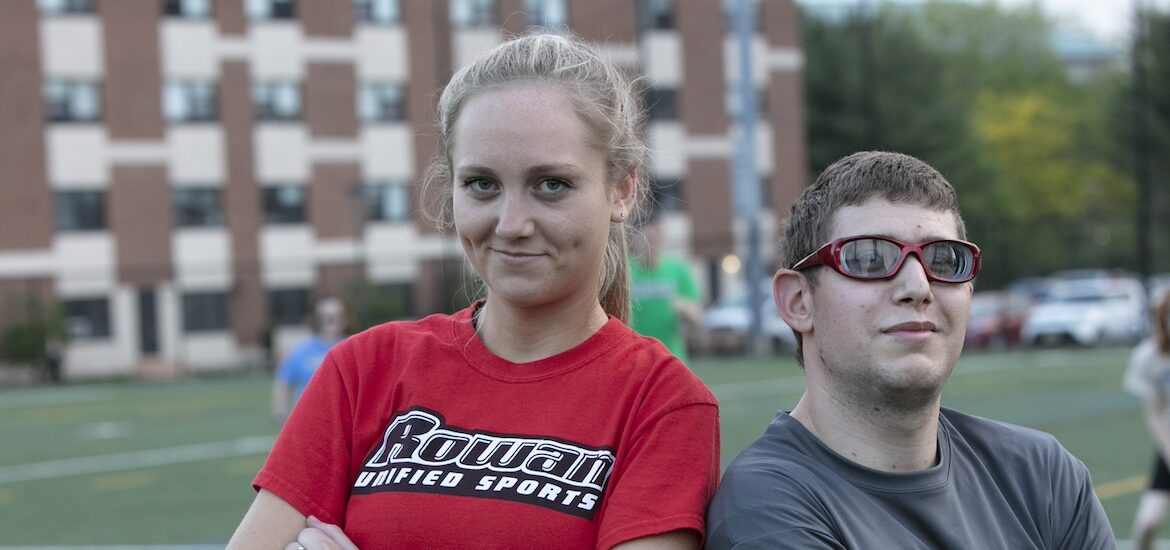
Senior Jordyn Dauter reflects as she launches her fourth year. Whether it’s from her own experience, or that of her friends, roommates or classmates, these are Jordyn’s top 25 student organizations that students should check out, if they’re kicking off the new school year looking for organizations to join. Campus photos included in this story […]
University Chorus Member Encourages Others to Join
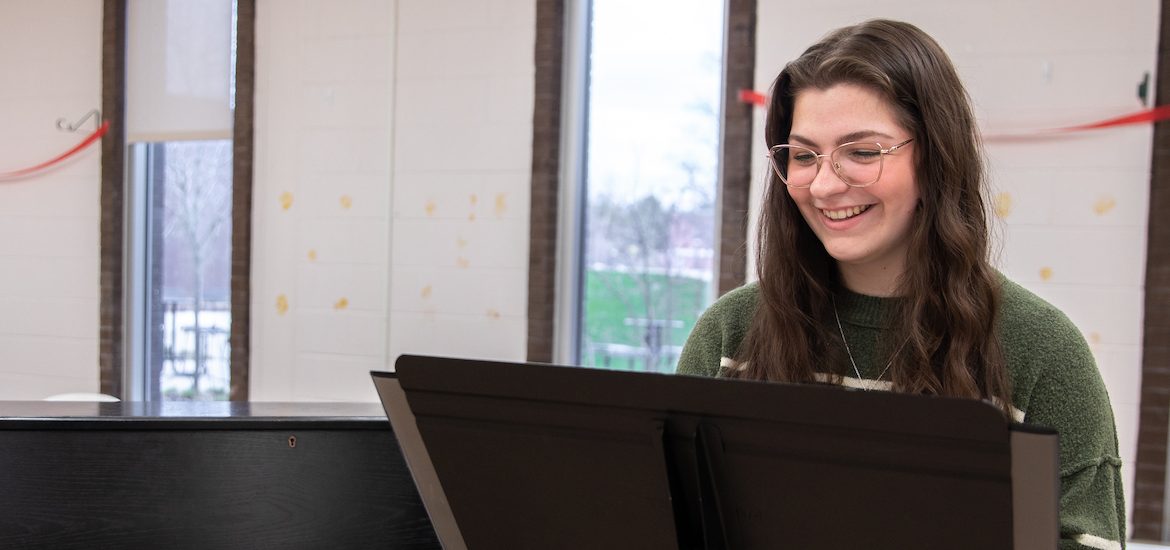
Meet Hannah P. a junior Theatre Arts major with a Musical Theatre Concentration from Raleigh, North Carolina, and a member of the University Chorus (UChorus). During my time in UChorus, I have learned that no matter what your background is with singing, or what your major is, there is a way to join an ensemble and […]
Marching Band, Episode 2: Taking the Field [VIDEO]
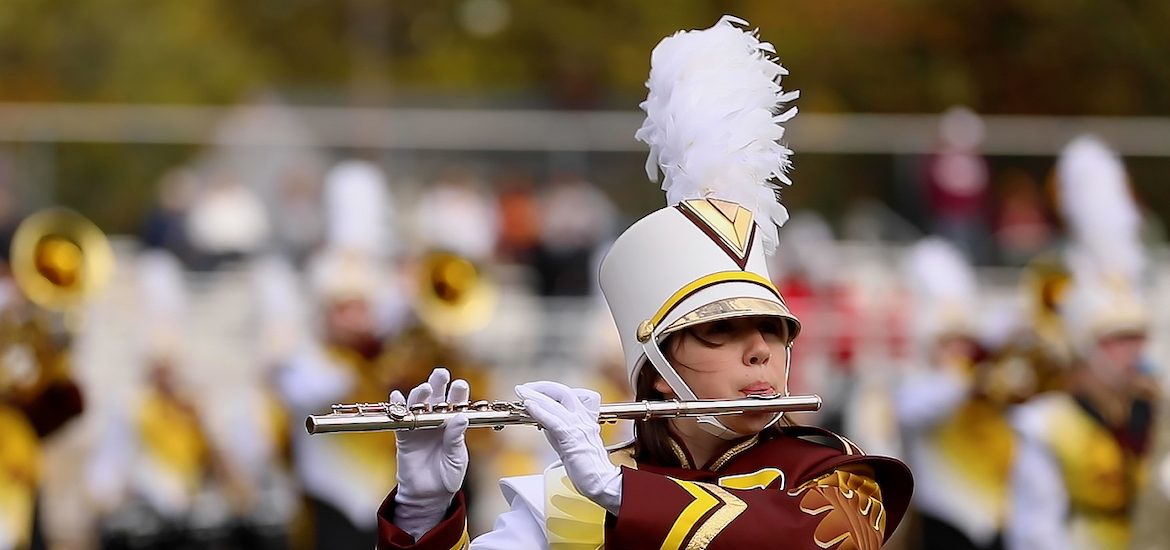
Interested in hearing how the newly launched Pride of the Profs marching band at Rowan University prepares for game day? On September 16th, 2023, The Pride of the Profs Marching Band made their game day debut at the home football game between Rowan University and Ursinus College. After months of preparation, the day finally came […]
Leadership Through Vietnamese Student Association
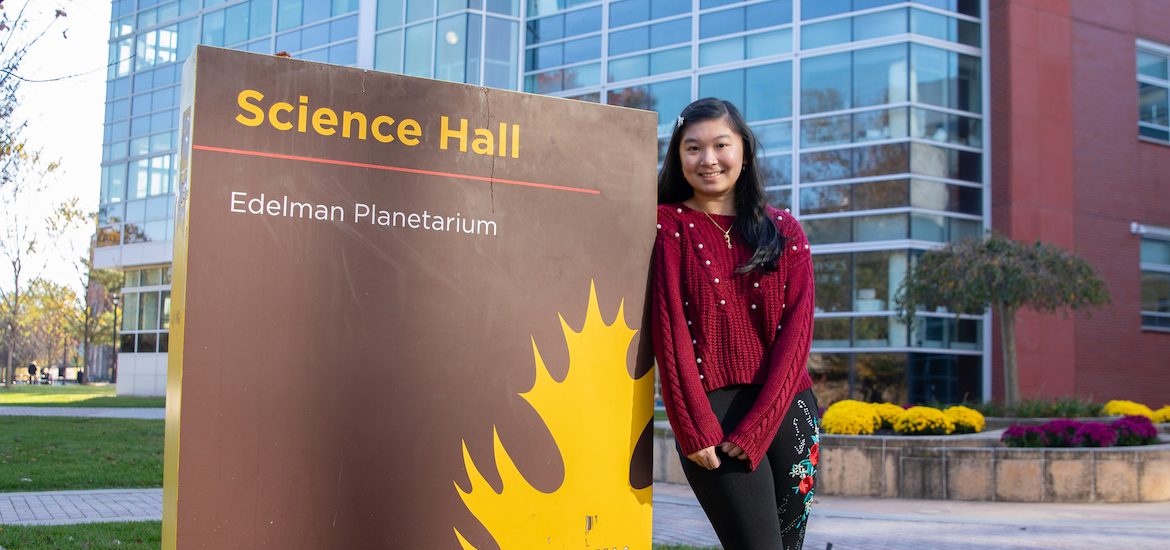
A Highlight of Student Life at Rowan University Meet Cindy N. a rising senior biochemistry major, with minors in neuroscience and psychology. She is a commuter and is here to discuss her role as president in the Vietnamese Student Association. Can you describe the goals of the Vietnamese Student Association? “With VSA, we strive to unite […]
10 Ways To Support LGBTQIA+ During Pride Month and Beyond
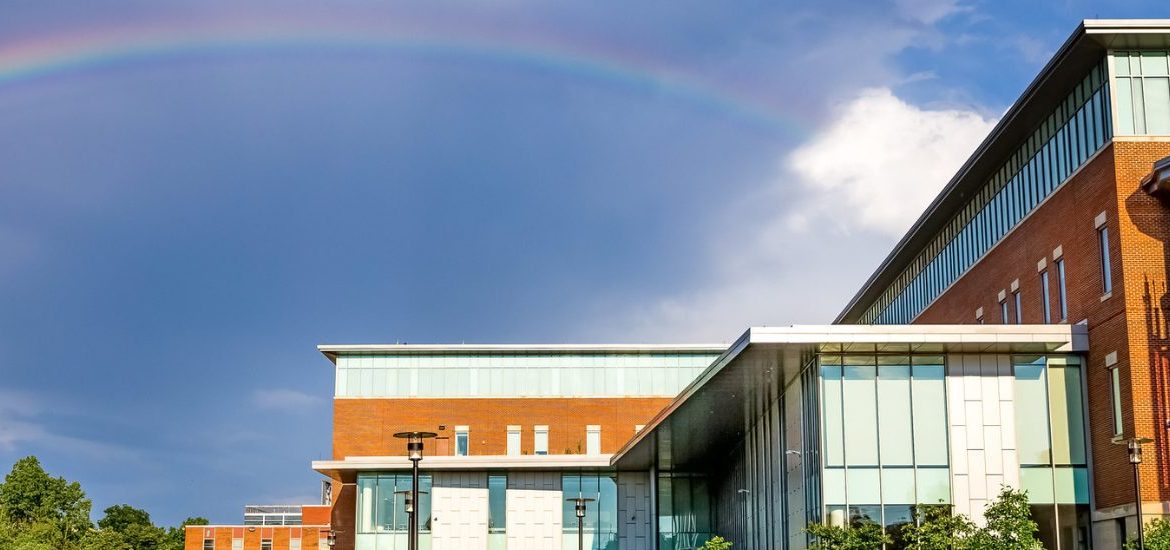
Rowan Supports the LGBTQIA+ Community 365 As the first sun rises in the month of June, love is in the air with the beginning of Pride month! With that being said, here are ten ways you can celebrate and support the LGBTQIA+ community throughout the month of June and beyond here at Rowan University. Many […]
NAACP President on Building Community for Students of Color

This Black History Month we hear from Esther Lendore, president of Rowan NAACP, on her journey as a Rowan student and her passion for creating a sense of community for students of color. A double major in political science and law & justice studies, senior Esther L. from Far Rockaway, NY, holds a variety of […]
Reasons Why I Chose Rowan Over Big 10 Schools

Smaller State School, Big Opportunities Socially & Academically Brianna G., junior public relations, major from Marlton, NJ (Burlington County) shares this first-person perspective on how being involved in different organizations help her enjoy her time at Rowan. LEARN MORE Written by: Brianna G, public relations major Story edited by: Valentina Giannattasio, junior dance and marketing […]
Rowan Civil Engineers and Concrete Canoes

Civil Engineering Majors Learn, Network & Race in ASCE Competition In the annual concrete canoe competition, Rowan University Civil Engineering students and the American Society of Civil Engineers, alongside engineering students from other schools in the area, compete. Each engineering team must determine what kind and mixture of lighter materials they should combine with the […]
Marching Band Rebirth Documentary: Triumph & Unity [VIDEO]

Pride of the Profs, Rowan University’s first marching band since the 1970s, shares all about their inception
Concert Choir, Perfect for Non-Music Majors Too
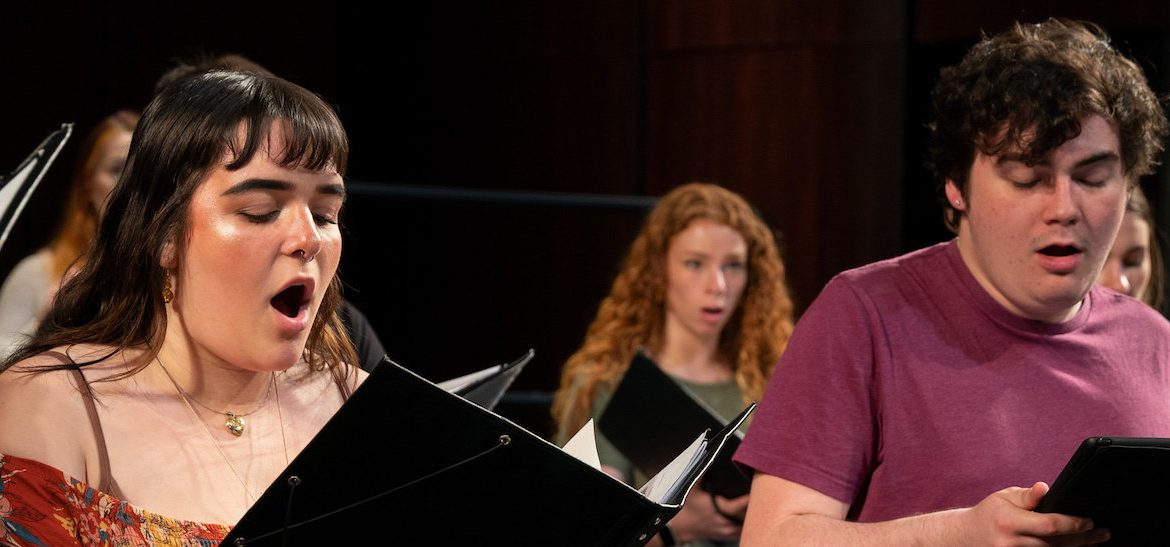
In this first-person perspective, sophomore music major and advertising major Alaina L, from Woolwich Township, NJ (Gloucester County) shares her passion and joy as a student in Concert Choir. Feel free to follow Concert Choir on Instagram at rowanchoirs. By Alaina L, sophomore music and advertising double major
My Home Away from Home, The United Latino Association
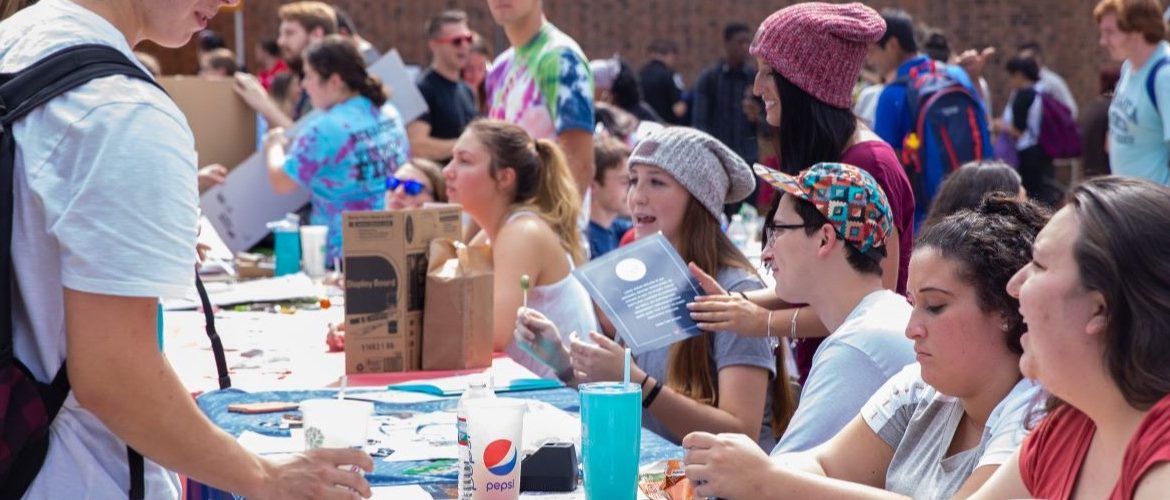
Julianna W, reflecting on her sophomore year as a political science major from Oak Ridge, NJ (Passaic/Morris Counties), shares this first-person perspective on how joining the The United Latino Association at Rowan University helped her rewrite her experience and find a home away from home. In addition to her major, Julianna will earn certificates of […]
Neurodiversity Advocate Promotes Autism Awareness at Rowan

One Rowan University Student Breaks Down Barriers All Year Round, Not Just During Awareness Months In 1997, sociologist Judy Singer introduced a new terminology to the world of science/medical world called neurodiversity, which is a concept that helps those to understand that there are varied ways that each person’s brain processes information, functions, and presents […]
Surviving Rowan as an Extroverted Introvert

Laney M, a junior advertising major from Mickleton, NJ (Gloucester County) shares this first-person perspective on their experience being an extroverted-introvert, and how college helped them defeat their fears. Written by: Laney M, Junior advertising major Story edited by: Valentina Giannattasio, junior dance and marketing double major
Finding Home at Rowan Through the Student Organization Fair

Nicholas W, a junior health science communication and communication studies double major, from Gloucester County, NJ shares this first-person perspective on how he found a home away from home on Rowan campus.
Transfer Student Bonnie’s Study Abroad Adventure in Colombia

Bonnie W, a senior international studies major from Downe Township, NJ (Cumberland County) shares her personal experience with us about the study abroad program she is participating in.
Keeping a Healthy Mind & Body at Rowan University

Nicholas P, a junior sports communication & media major, from Hopewell, NJ (Mercer County) shares this first-person perspective on the importance of keeping your mind and body active and healthy. He proceeds to explain how Rowan resources help him feel comfortable and build bonds on campus. Like what you see?
How Joining Choir Transformed My College Experience

Alaina L., a junior music and advertising double major from Swedesboro, NJ (Gloucester County) shares this first-person perspective on how joining Rowan Choir helped her rediscover her passion for music, improve her academic performance and feel a sense of belonging on campus. Written by: Alaina L, junior music and advertising double major Story edited by: Valentina […]
Full-Time Student & Army National Guard: Balancing Both

Nicholas W., a rising junior advertising major from Mercer County, NJ shares this first-person perspective on his life as a full-time student who is in the Army National Guard. My name is Nicholas W and I am a full time student here at Rowan University. While being a full time student I am also In […]
Making the Most of Campus Leadership at Rowan

What is your favorite part of the program? My favorite part of the program is the connections that I have made with people. I have made some of my best friends, but also so many connections with the professional staff at Rowan. I know so many people on this campus, and a lot of it […]
How Autism PATH Program & College Compass Supported Julie

Leader in Supporting Students With Autism, Rowan University Offers Free Program Many Universities Do Not Have [Editor review and edit November 15, 2024.] We amplify all student voices, all year-round. To be featured, please contact rowanblog [at] rowan.edu. Today we feature Julie G. (she/her), a rising junior computer science major from Morris County, NJ. Julie […]
Community Garden Grows Food and Fosters Inclusion

When you see a garden bursting with beautiful flowers and fresh produce, many stand to admire and indulge in the product. However, while eating these foods, commonly you don’t see the face that nourished these plants before they came into your possession. Mariana C. is one of the faces behind the seeds. A master’s student […]
Undergrad Life: Raymond W. Jr Builds Community

Rising senior Raymond W. Jr. (he/him/his) from Gloucester County, NJ, is a subject-matter history major and double minor in both international studies and political science, and he’s also heavily involved with the inner workings of campus as a leader of change. Today he will share with us his personal journey and contributions to the University […]
Rowan Helped Kit L. Embrace Their Identity

Today, we hear from Kit L (they/them), a rising senior psychology major with minors in Africana studies and women & gender studies. They are from Millville, NJ (Cumberland County) and a member of the LGBTQIA+ community. Can you describe your involvement on campus? “I am the president and founder of a new club on campus […]
Fashion Marketing Study Abroad Student Experience

Today we feature Mark B., a senior English major from Vernon, NJ (Sussex County) who will continue his studies as a graduate student this fall after he earned his bachelor’s degree this month. This story is the second of a three-part series where Mark will be featured based on his activities and campus involvement. Part […]
Caffeine Consumption in College Students

This article is part of a running series with Rowan University’s Wellness Center This collaboration aims to educate students about personal well-being options. For further updates, follow @RowanUWellness on Twitter, Instagram or Facebook. Caffeine seems to have become an inseparable part of being a college student. The most common ways to consume it are through coffee, […]
Graduate Student Sarah S. Shares Advice For Future Engineering Majors

Today we feature graduate student Sarah S. from Galloway, NJ (Atlantic County), who earned her Rowan bachelor’s in chemical engineering and is continuing her time with a master’s in chemical engineering. She shares her advice for incoming engineering students. Learn more about Sarah’s research. How did you discover that engineering was right for you? So […]
Interdisciplinary LAB: Co-Founder’s Story
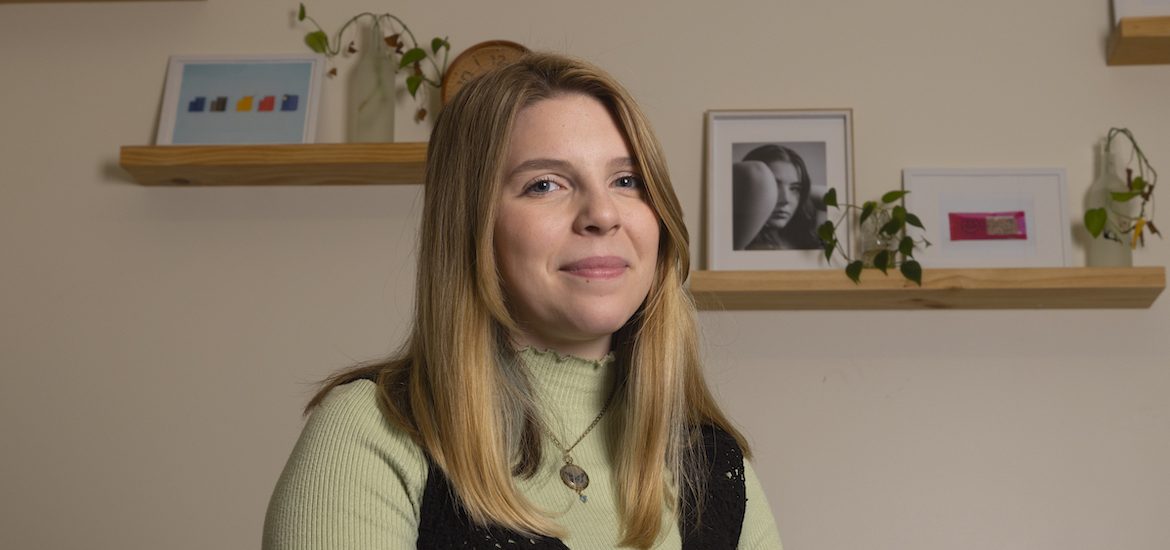
Today, we hear from Isabella S, a junior English Education major, Photography minor, and John H. Martinson Honors College student from Pitman, NJ (Gloucester County). Isabella co-founded Business Hall’s Creatives 230, which is an interdisciplinary learning lab for creatives and entrepreneurial students. “Last year, my photography professor Jenny Drumgoole and I went over to Business […]
Impact of Dance Extensions on Student Dancers

This semester Rowan University’s Contemporary Dance Company Dance Extensions put on its first ever Dance Extensions Showcase. Dance Extensions is a student-run dance organization on campus that is working to “promote dance as art.” This performance was held at Pfleeger Concert Hall, near the new Wilson Hall Dance Studios, and featured 14 student-choreographed works. The […]
Humans of Rowan: Finding Her Place in Wrestling, Volunteerism & Student Leadership

Internship & Experiential Learning Stories Learn how Rowan Profs go Beyond the Classroom to grow professionally, as well as personally, through internships and other experiential learning. Experiential learning includes hands-on learning opportunities provided through research, student clubs, campus leadership, student worker jobs, service-learning projects and volunteerism. In addition, Rowan’s Office of Career & Professional Development provides career support that’s more than just […]
From High School to Showbiz and Back Again: Rowan Alum Janine Edmonds Tells All on Her Career as a Guidance Counselor

Today we feature Janine Edmonds, a graduate of Rowan University’s class of 2001 with a degree in Radio/Television/Film and a 2006 graduate of Rowan’s M.A. In Counseling Educational Settings program. Here, Edmonds tells us about her path returning to higher education and her experience as a guidance counselor for Oakcrest High School. Did You Always […]
First Year Voices: A Conversation with Molecular & Cellular Biology Major Laynie Sheppard

Today, we hear from commuter student Laynie Sheppard, a Molecular & Cellular Biology major from Bridgeton, NJ (Cumberland County). Could you share a few on-campus activities, clubs, sports, or events that you’ve attended so far? What was your favorite, and why? “I go to Cru weekly and absolutely love it. I haven’t attended anything else […]
Why Rowan is My Home Away from Home

Rowan has also provided me with my first job opportunity. Here I learned how to develop my skills and techniques at the time of taking and editing photos as well as how to communicate openly with different students. As a photographer for Rowan Enrollment Management and Marketing Team, I have been able to work with […]
Benjamin Busler: Rowan Engineering Major Interns at NASA

Electrical and Computer Engineering major Benjamin Busler is representing Rowan University this semester as a Pathways Intern with NASA’s Goddard Space Flight Center in Maryland. Benjamin, a junior from Somerset County, is among a select group of students nationwide in NASA’s Pathways program, which offers internships and a direct avenue to future employment with the […]
Senior Adrianna Blake Speaks Out

Internship & Experiential Learning Stories Learn how Rowan Profs go Beyond the Classroom to grow professionally, as well as personally, through internships and other experiential learning. Experiential learning includes hands-on learning opportunities provided through research, student clubs, campus leadership, student worker jobs, service-learning projects and volunteerism. In addition, Rowan’s Office of Career & Professional Development provides career support that’s more than just […]
Q&A With a Health & Science Communication Major

Sedrick Golden is a junior student here at Rowan University originally from Pleasantville, NJ (Atlantic County). Sedrick is a Health and Science Communication major with a minor in Public Health & Wellness. Sedrick is breaking down barriers as a first-generation college student commuting to Rowan after transferring from Atlantic Cape Community College. On campus, he […]
#PROFspective: Civil Engineering Student and Clubs Enthusiast Kayla King

Internship & Experiential Learning Stories Learn how Rowan Profs go Beyond the Classroom to grow professionally, as well as personally, through internships and other experiential learning. Experiential learning includes hands-on learning opportunities provided through research, student clubs, campus leadership, student worker jobs, service-learning projects and volunteerism. In addition, Rowan’s Office of Career & Professional Development provides career support that’s more than just […]
How Law and Justice Major Keshawn Porter Stepped out of His Comfort Zone

Today we feature Keshawn Porter, a Law and Justice major from Essex County, who shares how joining on-campus clubs and organizations changed his Rowan experience for the better. Could you tell us a few on-campus activities, clubs, sports or events that you’ve attended? What was your favorite, and why? I am part of the Black […]
#PROFspective: Senior Lauren Cooper Says “Opportunities for Molecular and Cellular Biology Majors are Endless”

Lauren Cooper is a senior here at Rowan University, from Sussex County, NJ. Lauren is majoring in Molecular and Cellular Biology (MCB) along with her minors in pre-medical and chemistry. Why did you choose Rowan? I chose Rowan because it felt like home when I stepped on campus. I loved the size of the school, […]
#PROFspective: An Introduction to Tammy Nguyen, Leadership and Social Innovation Major

Today we feature Tammy Nguyen, a junior in Rowan University’s College of Education. Tammy, of Camden County, NJ, majors in Leadership and Social Innovation and is also pursuing a Certificate of Undergraduate Study (CUGS) in Access, Success, & Equity for Educational Innovation. Please share an “aha!” moment you’ve had within your major that made you […]
Welcome to Rowan University’s Hoofers Club [VIDEO]

“The Hoofers Club is a tap club we started here on campus,” says junior Dance major Benjamin Helpert. “It’s for anyone who really wants to tap.” Ben adds, “It doesn’t matter your skill level or your previous experience. As long as you want to tap, you’re welcome here.” See the Hoofers Club in action here:
All About Accounting with Senior Jacob Rodriguez

Today we feature Jacob Rodriguez, a senior Accounting major from Hammonton, NJ (Atlantic County). Jacob is a first-generation college student who transferred here from Rowan College of South Jersey in Gloucester County. We featured Jacob in a previous story as part of our Hispanic Heritage Month #PROFspective series, which you can read here. Could you […]
Exploring the Community and Environmental Planning Major with Senior Jon Hansel

Today we feature senior Jonathan Hansel (he/him) from Burlington County. Jon is majoring in Community and Environmental Planning and pursuing a master’s in Urban and Regional Planning through Rowan’s 4+1 program. Here, he discusses the importance of planning, his personal aspirations, and the opportunities he’s found in the program. Could you tell us a little […]
Gaining an Edge in the Business as a Music Industry Major: Alyssa McAvoy’s Story

Junior student Alyssa McAvoy shares how she’s making the most of being a Prof
In Conversation with Rowan’s Out in STEM Club President

What is the Out in STEM Club to an individual who is unfamiliar with it? The Out in STEM club focuses on creating community within the LQBTQ community within STEM majors. I understand that sometimes people would like to connect with individuals who have a sense of what they are going through academically and in […]
4 Rowan University Commuters Share Their Stories

These commuter students share incite on how they get the most out of their college experience and how they’ve made Rowan a home of their own
Josh Echandia on Sales Internship at CobbleStone Software

Internship & Experiential Learning Stories Learn how Rowan Profs go Beyond the Classroom to grow professionally, as well as personally, through internships and other experiential learning. Experiential learning includes hands-on learning opportunities provided through research, student clubs, campus leadership, student worker jobs, service-learning projects and volunteerism. In addition, Rowan’s Office of Career & Professional Development provides career support that’s more than just […]
Beyond the Classroom: How Two Students Blend Art and Science

Alumni Success Stories Explore how our alumni propel their Rowan University education into lasting success, as highlighted through our alumni success series. From Rowan University student to lifelong member of the Rowan University Alumni Association, Rowan Profs thrive at every stage of their journey. Go Profs! Internship & Experiential Learning Stories Learn how Rowan Profs […]
What the Writing Arts 4+1 Program Offers with Major Eric Uhorchuk

See our video with Eric here: Like what you see? LEARN MORE Story by:Natalie DePersia, senior public relations major Internship & Experiential Learning Stories Learn how Rowan Profs go Beyond the Classroom to grow professionally, as well as personally, through internships and other experiential learning. Experiential learning includes hands-on learning opportunities provided through research, student clubs, campus leadership, student worker […]
First Year Student’s Classes & Friends

Like many new college students, I began my freshman year unsure of what to do with myself. I was unsure if I had chosen the right major and was questioning what I could see myself doing after graduation. I decided to start by getting some required classes out of the way and see how things […]
Hispanic Heritage Month #PROFspective: Law & Justice, Psychology Double Major Katerine A. on Not Hiding Her “Personality, Culture or Heritage”

Today, as part of our Hispanic Heritage Month #PROFspective series, we feature Junior Katerine A. (she/her) from Bronx County, New York. Katerine is double majoring in Law & Justice Studies and Psychology. She discusses her Rowan experience, staying true to herself, and gives advice to future students. What is your student experience here at Rowan? […]
What Hispanic Heritage Month Means for Jeremy Arias

From Sept. 15 – Oct. 15, Hispanic Heritage Month is not only a celebration, but is also a time of recognition for the many people in the United States and beyond. In our conversation with Jeremy Arias, a junior majoring in Finance from North Bergen, NJ, we learned more of his own unique Rowan experience. In our dialogue with Jeremy we learned more of his leadership qualities as the president of a fraternity on campus (Alpha Phi Delta) as well as what his own Hispanic heritage means for himself.
What aspects here at Rowan motivated your decision to spend your higher education here?
The main thing was the environment. All my life I had been going to school with people I know. For example, the same kids I went to elementary school with were also in my high school. I think that’s why most people choose colleges that are so far away.
In my case, I transferred all the way from Indiana. I wanted to be away from home and meet new people. I think that going to Rowan, I was still home in New Jersey but I was still far enough from home where I could be around new people instead of surrounding myself with people I already knew. I still got the best of both worlds here at Rowan University.

What was the transition like transferring into Rowan?
I can definitely say it was a decently difficult transition. When I transferred I did end up missing the spring orientation. At this time, Covid was especially prevalent too so I was put into the transfer floor of Holly Pointe on the 7th floor. There was nobody living there except for my one neighbor. I didn’t even have a roommate, I was living in a double room by myself. Even when I went to all the programs like RAH (Rowan After Hours), they would have bingo or other activities but it was still all online so you really couldn’t meet people in the usual way. It was hard to get in touch with people because of everything being online, but it was an experience nonetheless.
Why did you choose to major in Finance?
The reason that I wanted to get into finance was because I grew up in a town that was across the water from New York. You see a city like that and you see how it’s run all by money, like Wall Street for example. It’s a big corporate town, but I knew that I wanted to be a part of something bigger like that one day. I wanted to be one of those people that have the distinction, the titles and of course, the wealth as well.
I feel like part of the reason that I wanted to be a part of an environment like that was because I’ve always wanted to be a part of a higher purpose. I’ve always wanted to be in places of greater importance and opportunity.

What have you enjoyed the most about Rowan so far?
What I’ve enjoyed the most about Rowan has to be the community. It’s not a big school but it feels so big because of the people. For me, it doesn’t matter how large or small a school is as long as the people there are large in personality or attitude. You always feel at home. There’s so many different people out there and they make the world larger than it is. Between the school programs and the boulevards and all the other opportunities that Rowan has to offer, it definitely is a close knit community.
The people here are larger than life itself. They want to involve you so much within the community. Even though you might feel isolated at times, you’ll always find a home in the community.
Could you tell us a bit more about your Fraternity?
I’m currently in the fraternity Alpha Phi Delta, which is an Italian heritage fraternity that was founded on Nov. 5, 1914. We chartered here at Rowan University in the 1970s. We were deactivated and then reinstated in 2017. While we may be one of the few fraternities that have been here for so long, we’re still building. As of now, we’re five years strong and excited for the future.
Even though we might not have as many brothers as other fraternities on campus there’s a beauty in it. All of the brothers are so close knit and really know each other. It’s just like a big family.
I definitely think it’s been quite a ride; I came in knowing nothing and then you come out and become a brother and you know everything about everyone. It’s like a circle of life. You have to learn everything about the brothers but eventually they become your best friends. As a new person comes in, you almost feel old. You were in the same spot as them only a few years ago. You become almost like the old wise guy. On another note, rush Alpha Phi Delta.

How did you come into your leadership position within your fraternity?
During elections, there were a couple of us running but I think that most people felt the most confident in me and my vision for the future. I ended up winning by only one vote but I had all the confidence in the world in myself that I had a shot at it but I understand why people were skeptical. I had just recently become a brother but I had a plan with how I wanted to steer the fraternity. A lot of the guys who had been in the fraternity at the time were involved during Covid, we were just getting out of it and there were certain things that unfortunately couldn’t work anymore.
But I knew the direction that I wanted to take everyone. I won the election by one vote and told everyone of my plans and really won them all over. I was one of the youngest presidents in the fraternity’s history. There’s definitely a learning curve and there is a much needed adjustment period. You think the whole presidency thing is all fun and dandy but there are so many different responsibilities. People depend on you. It’s still fun, but it was an awakening. I knew I wanted to be president. I wanted to shoot for the top. It’s everything I wanted out of it.

How has your experience as President of your fraternity changed your framework of mind?
I definitely feel like my leadership has steered the fraternity in the right way internally. There is a lot more work to be done, especially in the upcoming semester, but there’s a lot of things that we’re all really excited about.
My leadership is built upon a lot of values that I really believe in. I think that with hard work it gives you a sense of satisfaction. You work hard and when the job gets done you can sit down, reflect and enjoy the fruits of your labor.
What motivated you to take up a leadership position in your fraternity?
My mentor in the fraternity was the previous president of the fraternity. I saw all the work that he had done and all the leadership qualities that he exhibited. At one point, he told me that he had “picked me because he thought that I was worthy of this.” It resonated with me. I always want to be a part of a higher purpose and that was my calling. It was great for my confidence and I knew I had people who knew that I had potential.
Could you tell us a bit about your hispanic heritage?
My mother is Venezulean, she grew up in Caracas. My dad is Colombian, he was born in Bogota. He moved with my Aunt and Uncle to Venezuela where he eventually met my mother. Together from there they made their way to the United States.

How has your family incorporated aspects of your hispanic heritage into your life?
In every aspect of my life. The language, the values, the prevalence of family. Of course, especially the food as well. I’m a huge fan. I think everything really when it comes down to ethics and values. I attribute a lot of my drive and hard work to that type of upbringing. Everything they taught me was all I’ve ever known my entire life.
What does being Hispanic mean to you?
To me, it means being a part and representing an ethnicity that is filled with culture and life. There are so many colorful things that go with being Hispanic, the culture especially. My parents came here with nothing and worked for everything that they have. It’s kind of a representation for the entirety of the Hispanic culture. Some of us have come from nothing. A lot of work, so hard for everything that we have.
That’s the Hispanic way. It’s a hardworking and yet such a loving, family-oriented community.
How do you involve your Hispanic heritage into your daily life?
I think that I involve it in every way possible. For example, every morning I make a Hispanic breakfast. When I’m in class, I’m working as hard as I can so that eventually I can go home and show my parents, “Look at my grades, this is all for you guys.” The way that I’m around people, I treat them all like family. I love being around people, it’s amazing what happens when you treat people the way that you want to be treated.

What are your favorite parts about your Hispanic heritage?
It has to be the food, the language and the people. What I love the most about the Hispanic culture is that there is no such thing as one “Hispanic.” Even with dialect as well, Colombian Spanish isn’t the same as Venezuelan Spanish or even Ecuadorian, Dominican and Puerto Rican. They are all so different but at the end of the day there is one root for it all. There’s still enough similarities where you can understand what the other person is attempting to convey. We’re all so different but we’re also all the same.
How has your heritage influenced your identity as a person?
I think that the part of my Hispanic heritage that has influenced my identity the most is probably the family aspects. It’s such a loving community, like I said earlier, I’m a people person, I treat everyone like family. That’s just how I am. The discipline and the hard work has ingrained itself into me. In my opinion, every Hispanic has had that ambition and drive at one point in their life. I feel like that’s something that makes up my identity. I’m always striving for better because I always want more out of life. I want that not just out of me, but also everyone around me.
I gotta say though, the Hispanic food has definitely made up a large portion of my identity. It’s my favorite! Lastly, I think the idea of always making someone proud has made up a huge chunk of my own self. With my parents, they continue to work hard and give me everything that I have to help me in life. They still are guiding me down this path for as much as they can. I just want to be in a position of success where I can say “Hey Mom and Dad, I did this for you and I hope you’re proud of me.”
Like what you see?
Story by:
Lucas Taylor, Rowan Global student in Graduate English Education program
Photos by:
Ashley Craven, junior sports communication and media major
Justin Sabio Reflects on Hispanic Heritage Month

Today, as part of our Hispanic Heritage Month #PROFspective series, we feature Junior Justin C. Sabio (he/him), from Vineland, NJ (Cumberland County). Justin is a first generation college student majoring in Public Relations, having transferred to Rowan University from Rowan College of South Jersey. He tells us about his experience as a Rowan student, his […]
Hispanic Heritage Month #PROFspective: Senior Biological Sciences Major Esteban Nieto on a “New Community” at Rowan

Why did you decide to attend Rowan University? I wanted something different, something far from home. A new community, you know? Getting out of my comfort zone. What has your experience as a student been like? It’s been pretty good, honestly. Overall, I do enjoy it here. It’s very different. What attracted you to the […]
Student Leader Jack Campanella Joins Robotics Firm

Today we feature Jack Campanella, a senior Electrical and Computer Engineering major with a minor in Computer Science and a concentration in Honors. Jack is a lab assistant and peer tutor, and he also serves as president of Rowan’s Robotics and Automation Society (RAS). He hails from Monmouth County, NJ. Here, Jack shares more details […]
Hispanic Heritage Month #PROFspective: Law & Justice Major Kathleen has “Dreamed Big”

Today, as part of our Hispanic Heritage Month #PROFspective series, we feature senior Kathleen (she/her) from Perth Amboy, NJ (Middlesex County). Kathleen is majoring in Law & Justice Studies, having transferred to Rowan University from Rowan College of South Jersey. She discusses her experience at Rowan, professional aspirations, and gives advice to future students. What […]
Rowan University Student Discovers New Passion After Finding The Whit [VIDEO]

After discovering our school newspaper, The Whit, Helena Perray ’22 changed her major to Journalism and worked her way up to become co-editor-in-chief her senior year. She credits The Whit for helping her build relationships and her interpersonal communication skills. “The Whit has been an invaluable experience because you’re working with a group of people […]
Meet Transfer Profs: College of Education Student Emilie Pretto

Today we feature incoming transfer student Emilie Pretto (she/her) from Ocean County. Emilie tells us about her major, why she’s excited to start classes at Rowan, and gives advice to future transfer students. Welcome to Rowan! Could you share with us one thing you are looking forward to at Rowan University? I’m looking forward to […]
Meet Transfer Profs: Welcoming Students from the College of Humanities and Social Sciences

Today we feature incoming transfer students April Casey (she/her), an English major from Gloucester County and Emma Rodriguez (she/her), an Anthropology major from Ocean County. The two tell us about their majors, why they’re excited to start classes at Rowan, and give advice to future transfer students. Welcome to Rowan! Could you share with us […]
Meet Transfer Profs: 3 Marketing Majors from the Rohrer College of Business

Today we feature Marketing majors and transfer students Grace Massengale (she/her), Halle Lemanowicz (she/her), and Irany Cano from Gloucester County, Camden County, and Cumberland County respectively. The three tell us about their majors, why they’re excited to start classes at Rowan, and give advice to future transfer students. Welcome to Rowan! Could you share with […]
Angelica Petroche on Support and Inclusion at Campus

Like what you see? LEARN MORE Story by:Natalie DePersia, senior public relations major Photos courtesy of: Angelica Petroche
Community Garden: Fighting Food Insecurity From Home

Mariana Cardenas (she/her/ella) of the Rowan Environmental Action League (REAL) discusses how Rowan University’s Community Garden helps fight food insecurity on campus. Mariana is a Rowan Global student in the M.A. in Diversity and Inclusion program. She earned her degree here at Rowan in Psychology with a Sociology minor and a Certificate of Undergraduate Study […]
Sports Comm Major Spencer Reyes Celebrates Heritage

Today, as part of our Hispanic Heritage Month #PROFspective series, we feature senior Spencer Reyes. Spencer is majoring in Sports Communication and Media with a concentration in Radio/TV/Film and minoring in Communication Studies. He is from Old Bridge, NJ (Middlesex County) a first generation college student, and a transfer student from Middlesex College.
What is your student experience here at Rowan? Do you feel included? Supported? How so? Could you highlight an example or two?
At Rowan I most definitely feel included and supported by my peers. At first it was difficult to mesh in with others because I was a transfer student; however, it became a lot easier when I started to join clubs and organizations and some friends took me under their wings.
How did you find your friend group here at Rowan?
I found my friends through clubs and organizations.
Are you involved on campus? How so?
I’m one of the two sports producers at Rowan Television Network, produce games for Rowan Radio, I am an Admissions Ambassador, an active member of Lambda Pi Eta Honor Society, I play Club Hockey, and I work for Rowan’s Athletic Communications Department.

Could you highlight a Rowan classroom or campus experience that was inclusive and made an impact on you?
An experience that was very inclusive to me was when I helped RTN cover WrestleMania last year in the Pit. Prior to the event, I had limited experience on camera and production, but had watched wrestling growing up. Our Special Events Producer at the time taught me how to succeed at each position and the event was super fun, and I was awarded member of the week for my work.
Do you have a role model or mentor here at Rowan? Who are they and how have they supported your growth?
A mentor of mine at Rowan would have to be the Director of the Center for Sports Communication and Social Impact, Neil Hartman. He commended my work in the sports industry prior to transferring to Rowan, and allows for me to contact and meet with him frequently [to talk] about how I can progress my sports career.
What advice would you give to a Hispanic/Latinx high school student considering your major here at Rowan?
I would tell them that you don’t need to feel lonely or excluded as a Hispanic/Latinx student at Rowan, especially in the Sports Communication & Media major. Everybody gets along very well and invites new students with open arms.

What are your professional goals?
My professional goal is to become a professional sports broadcaster for baseball and hockey.
If you are open to it, could you share a little about your Hispanic or Latinx heritage?
I like to think of myself as a Caribbean blend, I’m half-Dominican (from my mom’s side), a quarter Puerto Rican and a quarter Cuban (both from my dad). Although I grew up in an Italian based neighborhood in Central Jersey with pizzerias on every corner, I never lost my heritage. I still eat rice and beans on a daily basis, cook my favorite Spanish foods and desserts, visit Elizabeth and Newark, and even my family in Westchester County in Miami, FL, which I highly recommend visiting if you want some authentic Cuban dishes without leaving the country.

Like what you see?
Story by:
Natalie DePersia, senior public relations major
Photos courtesy of:
Spencer Reyes
Hispanic Heritage Month #PROFspective: Law and Justice Major Cisley Calva on Taking Pride in Her Path and Culture

Like what you see? LEARN MORE Story by:Natalie DePersia, senior public relations major Photos courtesy of: Cisley Calva Internship & Experiential Learning Stories Learn how Rowan Profs go Beyond the Classroom to grow professionally, as well as personally, through internships and other experiential learning. Experiential learning includes hands-on learning opportunities provided through research, student clubs, campus leadership, student worker jobs, service-learning […]
Katarina Carmona on Diversity in Academia
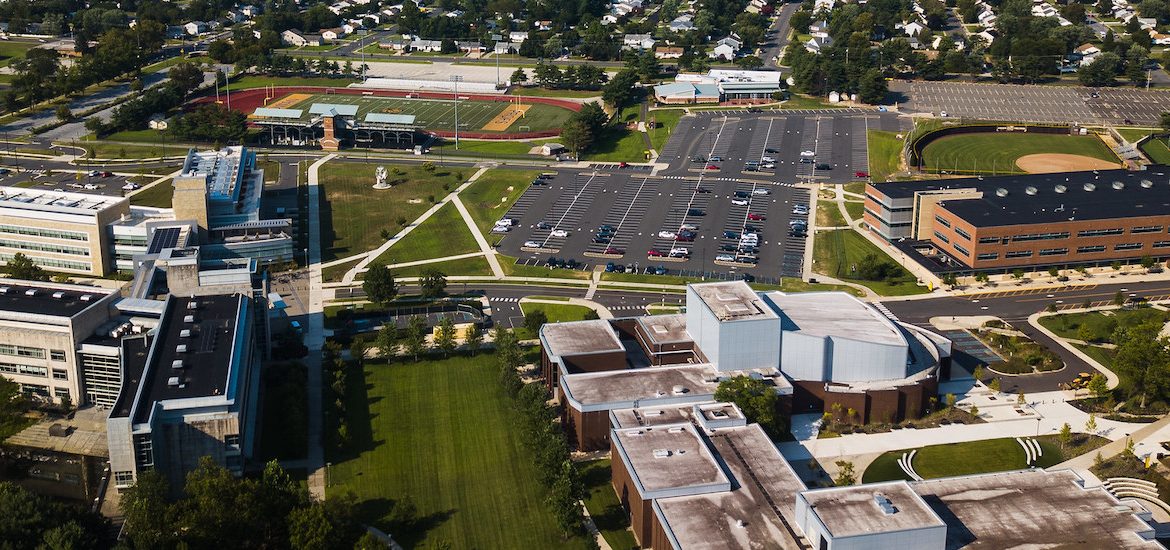
Like what you see? LEARN MORE Story by:Natalie DePersia, senior public relations major Edited by:Joseph Conte, junior music industry major Photos courtesy of: Katarina Carmona
Larry Diehlman Writes for South Jersey Magazine

Internship & Experiential Learning Stories Learn how Rowan Profs go Beyond the Classroom to grow professionally, as well as personally, through internships and other experiential learning. Experiential learning includes hands-on learning opportunities provided through research, student clubs, campus leadership, student worker jobs, service-learning projects and volunteerism. In addition, Rowan’s Office of Career & Professional Development provides career support that’s more than just […]
Rowan’s First Storytellers Camp Inspires Creativity

What is Storytellers Camp? Storytellers Camp is a creative media arts camp where students learn how we tell stories in all walks of life. When we think about storytelling, often we think of a book, but it’s not limited to books. The commercials that you watch that tell a story about a parent and a […]
Brooke Bryant Paints Rowan’s Campus Landmarks

Brooke Bryant (she/her), a senior Art Education major from Cumberland County, guides us through a summer session of an Introduction to Watercolor class with Professor Alicia Finger. Brooke talks to us about why she likes the class, the strengths of Rowan’s Art Education program, and some of the work she’s done in the class. What […]
Amit Dhundi: Champion for Graduate Students

Internship & Experiential Learning Stories Learn how Rowan Profs go Beyond the Classroom to grow professionally, as well as personally, through internships and other experiential learning. Experiential learning includes hands-on learning opportunities provided through research, student clubs, campus leadership, student worker jobs, service-learning projects and volunteerism. In addition, Rowan’s Office of Career & Professional Development provides career support that’s more than just […]
Flow Forward: Student-Led Initiative at Rowan University
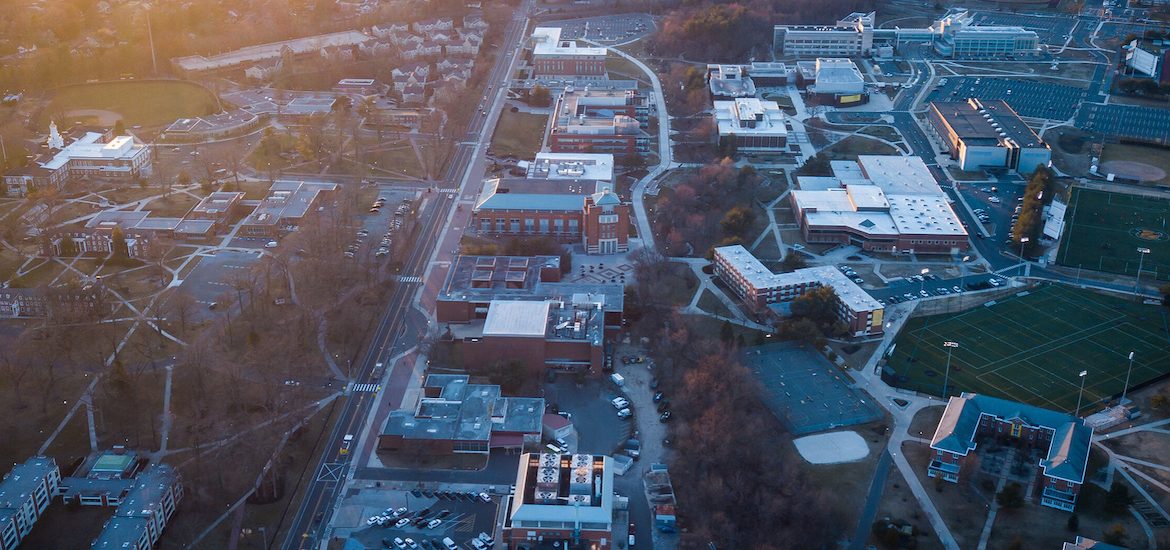
Story by:Natalie DePersia, junior public relations major Photos by:Stephanie Batista, senior business management major Internship & Experiential Learning Stories Learn how Rowan Profs go Beyond the Classroom to grow professionally, as well as personally, through internships and other experiential learning. Experiential learning includes hands-on learning opportunities provided through research, student clubs, campus leadership, student worker jobs, service-learning projects and volunteerism. […]
Ashleigh Jankowski’s Biotech Internship Journey

Today we feature Ashleigh Jankowski, a senior Biomedical Engineering major and Chemistry minor and a Manufacturing Engineer Intern for the startup biotech company Vectech. Ashleigh serves as Service Chair for Society of Women Engineers and President of the Biomedical Engineering Society and is a member of the Food Insecurity Committee and Rowan Unified Sports. Since […]
Woman in Business: Fey Talabi Reflects on Her First Year in the MBA Program

Fey Talabi, a Rowan Global student from Baltimore, Maryland, shares how she manages her roles as a resident director and a student in the MBA program.
Fey’s journey at Rowan University began at her undergraduate institution. Her supervisor, a proud Rowan alumni, recommended that she go to graduate school and pursue her degree here.
“I majored in Health Administration for my undergraduate degree and really enjoyed it. I knew I wanted to stay in healthcare, but I wanted to do so on the business side of things,” Fey says. “Rowan University’s program really stuck out to me because it is one of the only institutions that offer a concentration in Management. Now, I am pursuing a degree in Business Administration with a concentration in Management.”

Wrapping up her first year in the program, Fey has enjoyed her experience in the MBA program thus far.
“Graduate school has taught me some really valuable lessons. I feel like I am learning information that is practical and applicable to the workforce. In my Leadership Theory class, I am learning how to be an effective manager and how to rally employees toward a common goal. My Corporate Entrepreneurship class has given me the opportunity to format real business proposals. The program is very concentrated and focused, which I like.”
Along with academics, Fey is working as a resident director of Chestnut Hall.
“I learned about the resident director position from my former supervisor as well. I interviewed for the position through MAPC, which is a conference for employers to interview potential employees for work opportunities. I ended up getting the position and began training in August,” she says.

Fey’s favorite part of the position is her staff of resident assistants.
“This is my first time supervising a staff this large. I am taking management classes for my program, so it’s great to get to apply what I am learning in class to my assistantship. I really get to put my skills to work. Aside from my staff, Rowan University has a diverse culture and I have loved getting to interact with different members of the residential community,” Fey explains.
Managing classes and a graduate assistantship is no easy task, but Fey makes it look that way.
“It is all about time management. I am lucky because my job allows me to structure specific office hours, so I am able to base my schedule around that. I also have a supervisor that really values me as a person and student. She is adamant that I make time for schoolwork.”

In the future, Fey hopes to work in the healthcare industry. “I would love to work within the pharmaceutical sector as a business manager. Financial management really interests me, and I am excited to use my skills to better the healthcare industry one day.”
Like what you see?
LEARN MORE
Story by:
Loredonna Fiore, senior public relations and advertising major
Photos courtesy of:
Fey Talabi
Annabella Halbruner: Internship Prepares Finance Career

Internship & Experiential Learning Stories Learn how Rowan Profs go Beyond the Classroom to grow professionally, as well as personally, through internships and other experiential learning. Experiential learning includes hands-on learning opportunities provided through research, student clubs, campus leadership, student worker jobs, service-learning projects and volunteerism. In addition, Rowan’s Office of Career & Professional Development provides career support that’s more than just […]
Meet #Rowan2026: Incoming Students Look Forward to Clubs, Sports Teams, New Friends

Today we feature incoming Exploratory Studies first year students Kelly Hector and Olivia Szumloz (she/her). Kelly is from Watchung, NJ (Somerset County) and will be living on campus. Olivia is from Hamilton, NJ (Mercer County) and will also be living on campus. Welcome to Rowan! Could you share with us one thing you are looking […]
Olivia Covington’s Internship at Global Agency R/GA

Olivia Covington (she/her) is a senior Advertising major with minors in Strategic Communication, Professional/Technical Writing, and International Studies and commuter student from Cherry Hill, NJ (Camden County). Here, Olivia share details she is interning with marketing company R/GA as a remote copywriting intern. Can you tell me about your internship and the responsibilities you have […]
Meet #Rowan2026: Incoming Rohrer College of Business Students

Today we feature incoming first year students Hunter Sharp (she/her) and Jake Larocca. Hunter is from Cherry Hill, NJ (Camden County) and will be commuting to campus as an Accounting major in the Rohrer College of Business. Jake is from Brick, NJ (Ocean County) and will be living on campus as an aspiring business major. […]
Welcome #Rowan2026: Edelman College Freshmen

Today we feature incoming first year students Samantha Szumloz, Kyle Sheridan, Morgan Van Holtz and Donato Bazemore (he/him). Samantha is from Hamilton Township, NJ (Mercer County) and will be living on campus as a Writing Arts major. Kyle is from Galloway, NJ (Atlantic County) and will be living on campus as a Sports Communication and […]
Rowan Vocals Provides Students A Support System While Producing Beautiful A Capella [VIDEO]

Internship & Experiential Learning Stories Learn how Rowan Profs go Beyond the Classroom to grow professionally, as well as personally, through internships and other experiential learning. Experiential learning includes hands-on learning opportunities provided through research, student clubs, campus leadership, student worker jobs, service-learning projects and volunteerism. In addition, Rowan’s Office of Career & Professional Development provides career support that’s more than just […]
Rowan Writing Arts 4+1: Insights from Students

Internship & Experiential Learning Stories Learn how Rowan Profs go Beyond the Classroom to grow professionally, as well as personally, through internships and other experiential learning. Experiential learning includes hands-on learning opportunities provided through research, student clubs, campus leadership, student worker jobs, service-learning projects and volunteerism. In addition, Rowan’s Office of Career & Professional Development provides career support that’s more than just […]
Griffin Lallier: International Studies Grad Looks Ahead

Internship & Experiential Learning Stories Learn how Rowan Profs go Beyond the Classroom to grow professionally, as well as personally, through internships and other experiential learning. Experiential learning includes hands-on learning opportunities provided through research, student clubs, campus leadership, student worker jobs, service-learning projects and volunteerism. In addition, Rowan’s Office of Career & Professional Development provides career support that’s more than just […]
Passing the Torch: Outgoing RA Loredonna Fiore Reflects On Her Experiences

Loredonna Fiore is a recent graduate who majored in Public Relations and Advertising with a minor in Communication Studies from Elk Township, NJ (Gloucester County).

As a Resident Assistant in the Rowan Boulevard Apartments, most recently, Loredonna had an outstanding experience. Loredonna even attributes her closest friendships to being an RA.
“I was a commuter my first year on campus, and it was honestly hard for me to feel like I had like a place on campus. It wasn’t until I got involved and put myself out there that I started making my true friends, and I always say that becoming an RA helped me find my place and home on campus.”
Loredonna’s favorite memory as an RA was always summer training.
“All the RAs from all different areas all have to be in the same room, and it’s a really long process during the summer. My favorite part is always training because we’re all together as a staff, getting closer and bonding. This year, we did a lip-sync battle, and it was just so much fun. That’s definitely a favorite memory of mine,” she says.

Looking back, Loredonna says her high school senior self needed advice on friendship.
“I would say I would tell my high school self that it’s definitely a matter of quality over quantity when it comes to your friendships. Often, society tells you if you don’t have all these friends and these big girl groups that you’re failing in your friendships. I would give my younger self the advice that true friends really click with you and they know your heart and they know you as a person. It’s ok if that’s only like one or two really true good friends.”
Aside from being an RA, Loredonna was active on campus in other roles.
“I have an elevated leadership role in Resident Life as an Assistant Resident Director. I’m also a Digital Content Contributor for Rowan Blog, so I get to meet many student leaders on campus, interview them and hear their stories.”
In the fall, Loredonna is pursuing her master’s degree in Mass Communication and Journalism at the University of Georgia. She is also starting a Graduate Assistantship as a Resident Director upon graduation.
Like what you see?
Story by:
Rachel Rumsby, senior communication studies and public relations double major
Passing the Torch: Outgoing SGA President Matthew Beck’s Parting Advice and Rowan Legacy

“Put yourself out there, take those opportunities, because if you ask for them and are looking for them, then the opportunities will come.” From leading the student body to interning for the company he will now join after graduation, Mechanical Engineering major Matthew Beck of Monmouth County stayed open to new possibilities throughout his Rowan […]
Passing the Torch: Passionate First-Generation College Student Shirley Celi-Landeo

Internship & Experiential Learning Stories Learn how Rowan Profs go Beyond the Classroom to grow professionally, as well as personally, through internships and other experiential learning. Experiential learning includes hands-on learning opportunities provided through research, student clubs, campus leadership, student worker jobs, service-learning projects and volunteerism. In addition, Rowan’s Office of Career & Professional Development provides career support that’s more than just […]
Passing the Torch: Outgoing Student Government Vice President Sarah McClure

Internship & Experiential Learning Stories Learn how Rowan Profs go Beyond the Classroom to grow professionally, as well as personally, through internships and other experiential learning. Experiential learning includes hands-on learning opportunities provided through research, student clubs, campus leadership, student worker jobs, service-learning projects and volunteerism. In addition, Rowan’s Office of Career & Professional Development provides career support that’s more than just […]
Alumni Samantha Santos Speaks Out

Today we feature Samantha Santos, a recent Rowan Global graduate of the M.S. in Athletic Training program. Samantha won the 2022 Athletic Training Medallion Award for her commitment to her major and passion for the athletic training field. She talks about her experience as an athletic training major, her experiences with her professors, and how working in the Rowan University Athletic Training Program has prepared her for her future endeavors.
How would you generally describe the athletic training major?
The easiest way to describe athletic training is that we are the sports medicine professionals who assist athletes in injury rehabilitation. We all specialize in the prevention and emergency care — we do a lot of paperwork — but we are the guys you see on the sideline of a football game. I feel like that’s the most of the easiest way to put it.

Can you talk about what you do on a day-to-day basis?
When people think about athletic training, they instantly think of taping ankles or a specific body part before players attend a practice or play in games. We do tape ankles, and we tape a lot of everything, honestly, but what we do is way more than that.
Athletes come in to see us, and they may tell us that they don’t feel great today, and I don’t feel that well. We come in and assess their symptoms for general medical concerns like sicknesses or allergies for a doctor to then come and officially diagnose. There are also moments where players come in, and it’s related to their mental well-being. Sometimes we have to sit down and have a conversation with them. We want athletes to know that we are here for them in other ways other than just rehabbing their hamstring or ankle. The field setup and game coverage are the best part of the job and why I was drawn to the profession; but honestly, I think my favorite part of it is seeing an athlete that got hurt and went to rehab with your return to play and get back out on the field.
Why did you choose to major in athletic training? What made the field stand out to you?
I first got interested in athletic training in high school. We didn’t have an athletic trainer at my high school because I went to a small private school. So when I found out about the profession, I was like, wait a second…this seems like something that would fit me perfectly.
I love how the role athletic trainers play in the lives of the athletes they work with is continuous. I like to be there every step of the way. It’s not a job where I’m in an office all day. With this job, we are involved with initial symptoms and injury prevention and recovery, return to play, and the mental and physical components of being a player who came back from injury. I remember my junior year here when I started my clinical assignment; on my first day in the facility, I worked with women’s basketball and men’s and women’s swimming and diving and helped out with football because they were beginning preseason. I remember thinking that there were so many football players, and it was overwhelming.
I am not going to sugarcoat it, you do get thrown into the fire, but it was the best way to learn and be comfortable in this field.

How was being an athletic trainer major different post-Covid-19 lockdown? After returning from lockdown, how do you handle the fast-paced, athletic training environment?
It is crazy how much has changed over the years. The other day, I was talking to Colleen, the head athletic trainer, about how we had to do temperature checks on every athlete and person who walked into the training room. We had to set scheduled time slots for teams and athletes to come into the training room to eliminate many people being in all at once. It is controlled chaos in the athletic training room. We would continuously keep up with patients via email and online too.
In Spring 2021, I was at Delsea High School, and when I was there, there were still some Covid-19 protocols and enforcements to follow, like wearing masks. But as time went on, it started to feel more and more normal. This past fall, it was the first time I thought we were genuinely seeing normalcy in the training rooms. We still were encouraged to wear masks; however, athletics in high school and college had no more restrictions. The most significant adjustment was definitely from Spring 2020 to Spring 2021. I saw a substantial change in regulations and accessibility from Spring 2021 to Fall 2021 and even Spring 2022.

What is the best part of pursuing this major at Rowan?
The hands-on experience is the best part of the program. We learn so much in this program in and out of the classroom. For example, in my sophomore year here at Rowan, we learned so much anatomy about injuries, pathologies, rehabilitation, case patterns, how to reach a diagnosis, and so much more. I remember feeling like my brain was overloaded because we had obtained so much information. I was overwhelmed the summer before my first clinical because I was thinking, how will I apply everything I learned into actual practice on patients and athletes? But obtaining this clinical experience while being a student was unique and an excellent opportunity for learning and applying knowledge in real-life settings.
As previously stated, I have completed hours with Rowan University Women’s Basketball, Swim and Dive, Football, and Baseball teams which made my experience special. The opportunities that we get as athletic training majors regarding working with athletes in high schools are also fantastic for obtaining experience in the field. I got to work and complete hours at Woodstown and Delsea Regional High Schools.

Can you talk about how working with professors and professionals like Head Athletic Trainer Colleen Grugan and Assistant Athletic Trainers Chris Pantellere and Steve Schultz have helped prepare you for your future endeavors?
Our professors are great. I worked with Dr. Sterner, Dr. Mann, and Dr. Pledger. My professors impacted my academic, professional, and even personal life in so many different ways. Classes were never easy. We were always learning a lot of material, and it became very overwhelming at times, and I was constantly studying. I had worked over 1,600 clinical hours, and I probably put equally the same amount of time just into studying. The work was non-stop, and it felt at the time that it was never going to end. But it always ended up being worth it. Thankfully, I did well in my classes, and it truly helped me clinically to be able to practice what I have learned. My professors made it easy because if I needed help, all I had to do was ask. My professors would go over anything ranging from quizzes, exams, material taught in class, and more.
I have had the same experience working with Head Athletic Trainer Colleen Grugan and Assistant Athletic Trainers Chris Pantellere and Steve Schultz. I have never hesitated to ask them questions on anything I was unsure of or wanted more guidance on. In my first semester, Chris was my preceptor. It was just one of those things where you are just thrown into the fire.
I remember it being the third week in August that we started, and we were covering the men’s soccer tournament. There was an emergency, and my partner and I just had to do what we were taught to do, and Chris was coaching us through it. We handled the situation exactly how we were taught to handle it in class; however, Chris guided us the whole time and really established for me that we are never alone. It was nice having Chris there because we calmly handled the situation quickly and efficiently. Colleen is so easy to talk to and one of my favorite people to work with. She taught two of my lab classes, and I instantly remember thinking that Colleen was a boss and an excellent person to be mentored by. She is knowledgeable, loves teaching, and truly wants us to learn from experience. Colleen, Chris and Steve all put us in situations where we are forced to figure it out, and I have learned to love expanding my knowledge within the field this way.

What advice would you give to someone pursuing the athletic training major at Rowan?
Stay on top of studying because it is easy to fall behind in this field. Go to the library for an hour or two every day to familiarize yourself with the material. I felt like I lived in the library most of college because I was always studying or trying to obtain new material in a quiet space. It is essential to find people in your classes with whom you work well. These people can be great study partners and can help with collaborating ideas.
Can you sum up your experience at Rowan? Why was Rowan the best fit for you?
Rowan was my first and kind of only choice, to be honest with you, when I was in my college search. I was in a community college. I went there for two years and got my associate in Biomedical Science. I remember looking up athletic training programs one day, and I saw that Rowan had a top program, and I grew up in Vineland, so it was convenient for me. I knew coming into it that it would be difficult, but I knew that if I wanted to be successful, this was the route that I had to take. So when I started, I didn’t realize that it would be as difficult as it was, but I genuinely feel that I am now ready for work post-graduation and am confident that I will be fine.
But Rowan was definitely my number one choice for that reason, and I just knew that I just felt right, and it was so close to home, and then the program itself resonated with me. So Rowan was the right fit for me; there was no question about that.

What are your plans post-graduation?
So as far as the job hunt goes, I have seen plenty of jobs up in North Jersey, which is fine. However, I don’t think I could do more than an hour commute, and I can’t move just yet, so I’m going to try to say more in the South Jersey area.
I would love to work in the college atmosphere. However, my dream job would be to work as a trainer in professional baseball. Right now, I am going to search for jobs in college or high school. I want my first job to be a huge learning experience to continue to build and grow. So I’m kind of open to whatever opportunities I find.
Rowan is excellent because you form these connections with professors and fellow students, and sometimes they know people that are hiring or are good referrals for job applications. I feel like people are always helping each other in some capacity, and it is nice.

See our video with Samantha here.
Like what you see?
Story By:
Natalie DePersia, senior public relations major
Men’s Track and Field Student-Athletes on Their Winning 4×400 Relay Season

Today we are featuring Jah’mere Beasley, Nana Agyemang, and Amara Conte, three of the four Men’s Track and Field members who secured the national championship title in the 4×400 relay in their indoor season [editor’s note: the team would later finish second in the outdoor national finals].
Jah’mere is a junior Sports Communication and Media major from Camden, NJ (Camden County) and ran third leg for the 4×400 relay. Nana is a sophomore Exercise Science major from Parsippany, NJ (Morris County) and ran second leg for the 4×400 relay. Amara is a sophomore Accounting major from Jersey City, NJ (Hudson County) and ran anchor for the 4×400 relay. All three share their stories on leadership, camaraderie, and express how competing in Men’s Track and Field National Championship has shaped their university experience.
Amara Conte: Our team camaraderie is what makes us a great team, our bond and trust in each other’s ability to perform when it matters most helped us to focus on our own individual part of the relay and perform to the best of our abilities. What makes our team different from other teams is that we are more than a team, we are family, we are brothers, and we always have each other back. Knowing this makes up for our individual flaws and makes us a strong team.
Nana Agyemang: The team is like one big family. We go through so much pain and suffering at practice that it only makes us stronger and makes us care for each other even more. We keep each other accountable whether that’s making sure we are on time for practice or hitting the correct times for practice we just want to see everyone maximize their full potential. I think the difference from our team to other teams is that we’re really hungry and never satisfied. We always know we can improve on something so when we do good we smile, and celebrate it for the weekend but on Monday it’s back to work like we didn’t so we can always get better and moving forward.
Going into the race, what emotions were you feeling? Were you guys considered to be an underdog or favored within the 4×400 relay at the meet?
Jah’mere Beasley: Going into the race everyone was laser focused and locked in. I had just taken third place in the 200m, so I brought that energy over to the other guys. We had been ranked #1 in the country all year, and we knew we had the chance to win it all. I would say we were the favorite to win, but there were a lot of other great teams who had solid chances as well.
Nana Agyemang: I was excited going into the race because of what was at stake. We knew what we had to do and how we were the team to beat from being the National Champion in outdoor so I was thrilled and excited to just get the race underway. We had the #1 time going into nationals but going into finals we were ranked third so most teams probably thought they had us beat because we were running three new people who weren’t on the outdoor national championship (me, Marquise and Jah’mere). In my head it felt like we were the underdogs, but we also knew that we were still the team to beat so we had to go out there and rise up to the occasion.

Amara Conte: Our team’s biggest strength is the bond we have and our undying love for the sport of Track & Field. Our greatest weakness is that since we have such a diverse group when it comes to individual events, it becomes hard for us to put our all on the relay event, but we somehow make it work and compete at our best when we matter.
How do you prepare for an event like this before race day?
Jah’mere Beasley: The day before a big race like this I try to stay off my feet as much as possible. I always make sure I eat a great dinner and snack the evening before. I take an ice bath and hot shower to help my legs feel rested. I roll out and stretch really well before bed. I always try to make sure I get 7-8 hours of sleep before a big race day.
Nana Agyemang: How I prepare for meet day is I usually wake up and instantly play some gospel music because I am a big believer in God so when I wake up I just wanna praise him. Then I go head and brush my teeth and shower and I usually have talks with myself to get my mind right because you are only as strong as your mind. Then I made my breakfast which is usually brown sugar oatmeal, eggs, a water and a granola bar. When I hop on the bus I do a little meditation to get my full body right. Then as we head on the bus approaching to the meet I’ll switch my playlist, attitude, and focus to a more serious tone and lock in on the task ahead.

How do you prepare for an event like this on race day? Do you have any race day traditions, meals, or specific actions you swear by?
Amara Conte: Once we get to the track on the day of the meet, I do my usual warm up while listening to my pre-made playlist that I have prepared just for track meet to help me stay focused and locked in. I don’t eat much on meet days because I run fast on an empty stomach.
How does winning the [indoor] national championship for the 4×400 meter relay shape your experience at Rowan? How are your track experience in general shaped your college experience?
Amara Conte: Winning the national championship in 4×400 meter twice now has made my experience at Rowan more pleasurable and has enhanced my experience in ways that I could only imagine. My track experience in general has taught me many life skills, for example: time management, networking, and discipline. Due to my experience as a track athlete, I’ve grown in more ways than I can possibly fathom and with more years these skills and experience will only sharpen and improve before I enter the real world.
Jah’mere Beasley: Winning the national championship in the 4×400 has made my time here that much more special. This is one of the closest teams I have ever been a part of, and winning that national title brought everyone closer together. Having a brotherhood like this is unmatched. I always cherish the moments I have on the track and that national title is something I will always remember. Those moments always motivate me to get faster and better than I was before. My track experience has shaped my college experience in a big way. Track has helped me make lots of new friends here at Rowan. Most of the the friends I have made are people that play other sports. Track is helping me stay focused in the classroom as well. It motivates to keep my grades up and give max effort with each assignment.
Nana Agyemang: It’s been cool seeing my friends repost it, having teachers come up and congratulate me has been a great feeling. It’s just made my Rowan experience better and more enjoyable. Track had taught me valuable lessons like when things don’t go your way you can either come back the next day and try again or quit. It has also taught me that life will get hard, like workouts, but if you keep going there is always a light at the end of the tunnel. It might look dark while you’re going through but sooner or later you will reach the end of the tunnel and be happy you did. We have had plenty of workouts that we feel like we aren’t gonna make it but we just gotta keep going and you gotta tell yourself your stronger than that you think.

Do you participate in both winter and spring track? What are the biggest disparities between the two? What the biggest challenges between the two different seasons?
Jah’mere Beasley: I run both winter and spring track. The biggest disparity between the two are the size of the tracks. The winter track is 200m and the spring track is 400m. During the 4×400 in winter track, each person runs two laps, as compared to spring track where each person runs 1 lap. Events like the 4×100 and javelin are only during spring track. The biggest challenge is running on the indoor tracks. The lanes are smaller and the turns are tighter. It take a lot of getting used to during the season.
Read our earlier interview with Jah’mere here.
Like what you see?
Story by:
Natalie DePersia, senior public relations major
Photos courtesy of:
David Dermer/Rowan Athletics
20 Minute Radius: Centerton Golf Club

Centerton Golf Club is a local 18-hole golf course that is affordable, close to campus, and open seven days a week, making it a great nearby spot to visit.
Located in Pittsgrove, NJ, Centerton Golf Club is a 20 minute drive from campus and is worth the effort to visit and take part in. Whether you’re a first-time golfer or a seasoned veteran, this 18-hole course is a great way to spend the afternoon with nature.

When you check in, you’ll enter the pro shop where golf balls, tees, towels, and other merchandise you might need are sold. If you don’t have a golf club set of your own, there are also clubs available for rent.

Although golf is predisposed as the main attraction, it isn’t the only thing Centerton has to offer. There is an outside concession area that sells hot dogs, hot sausages and cold drinks to get on the turn. If you’re hungry or thirsty while playing, Centerton has a beverage cart attendant that drives around the course to serve food and drinks so you don’t have to stop playing and keep yourself refreshed.

Visiting Centerton Golf Club is a great way to support a local business, exercise, and get outdoors.
Like what you see?
Story and photos by:
Loredonna Fiore, senior public relations and advertising major
Senior Reflects: Ella Emmer on Being PRISM President

Ella Emmer, a senior Psychology major with a minor in German from Somerset County, NJ, reflects on her experience as the PRISM club president and the legacy she hopes to leave on the organization.
Ella has made her mark on Rowan University’s community. Her impact can be attributed to her efforts as PRISM president, an LGBTQ+ organization on campus.
“PRISM provides a safe space for members of the LQBTQ+ community to socialize, form friendships and be their true selves,” she says.
Ella stumbled across PRISM… literally.
“I got lost going to a study abroad meeting and I wandered into JoAnna Murphy’s office in the SJICR office. After we got to talking, she introduced me to PRISM. The meeting times fit with my schedule, so I started going to meetings regularly. I became really close with members of the e-board and passionate about activism, so I decided to run as secretary my sophomore year. After serving as secretary, I ran for president and have served in that role ever since,” Ella explains.
As president of PRISM, Ella manages a lot of events for the organization. “So much goes into planning and executing events for the club. I have to pick a venue, contract any guest speakers or entertainers that come out, and spearhead any fundraising necessary for the event.”

Ella was especially proud of PRISM’s role in the university’s Lavender Graduation ceremony, which recognizes and celebrates LGBTQ+ students and allies ahead of their respective college commencement ceremonies.
“Lavender Graduation is very special to me. Since legal names have to be put on your diploma for graduation, it can oftentimes not reflect a person’s true identity. PRISM helps host a graduation that uses the person’s preferred name — their real name, to be recognized and honored for graduating as their true selves. I am speaking at the event and I could not be more proud to be a part of it.”

Along with hosting events, Ella leads e-board meetings as PRISM President. “During meetings, aside from preparing for events or upcoming fundraisers, we have an educational portion about LGBTQ+ history. Since LGBTQ+ history is not taught in schools, it is so important to learn about our history and all of the activists who got us here today,” she says.
As she reflects on her experience in the club, Ella looks back fondly on the memories she has made.
“I am really happy I got to be involved in an organization that makes a difference. Since I have been in PRISM, we have raised over $2,500 for LGBTQ+ organizations. This money has gone to not only big organizations, like The Trevor Project, but smaller organizations that aren’t as popular or advertised as well,” she says. “Aside from fundraising, I also worked with JoAnna Murphy with the SJICR to create a map for gender-neutral bathrooms on campus. This was a really important project to help others feel more comfortable on campus.”
Ella hopes the club continues to advance and do great things after she graduates.
“I hope the future of PRISM is bright and continues to make a positive impact for people in the community. Now that Covid is slowing down, I hope the new e-board can hold more events and partner with other organizations in the surrounding area for our members.”
Like what you see?
LEARN MORE
Story by:
Loredonna Fiore, public relations and advertising graduate
Photos courtesy of:
Ella Emmer
Desire Forman
Finding Strength: My Experience With Rowan MMA

Today we hear from Rowan Blog guest contributor Demetri Moutis, a junior Sports Communication and Media major, who recounts the powerful effects of joining Rowan’s Mixed Martial Arts (MMA) Club. Demetri, of Roselle Park, NJ (Union County), is a transfer student from Ocean County College. After discovering Rowan MMA, I found myself doing things that […]
International Student Dalsha Douglas on Her Rowan University Experience

Internship & Experiential Learning Stories Learn how Rowan Profs go Beyond the Classroom to grow professionally, as well as personally, through internships and other experiential learning. Experiential learning includes hands-on learning opportunities provided through research, student clubs, campus leadership, student worker jobs, service-learning projects and volunteerism. In addition, Rowan’s Office of Career & Professional Development provides career support that’s more than just […]
ICYMI: Rowan University Dance Team Ranked Fifth in Nation

This year, the Rowan University Dance Team competed at the Universal Dance Association (UDA) Nationals in Florida, where the team placed fifth in the Open Division Hip Hop category. Here, members of the Dance Team reflect on their time at the competition and talk about their dynamic as a team.
What makes the Rowan Dance team different?
Jordyn Dauter, a first-year Dance & Exercise Science from Quakertown, Pennsylvania says: “Everyone on the team has something unique to offer, whether that is something specifically to dance, or other elements like attitude or leadership skills. We all have something special to offer, which makes our team diverse.”
Teammate Amber Schott, a junior Psychology major from Bayville, NJ (Ocean County), adds, “Definitely the dynamic of the team. I made my best friends here at Rowan through this team and I always feel super supported and encouraged in reaching my dance goals.”

Senior Kaya Snow, a double major in Dance and Theatre Arts with concentrations in Acting and Musical Theatre from Oak Ridge, NJ (Passaic County), says, “We’ve really gone through some huge changes in the last few years and we’ve come out stronger through it all. I’m so glad that we decided to pursue UDA Camp and Nationals my sophomore year because it really has changed the entire dynamic of the team for the better.”
Kristin Mostrangeli, a sophomore Psychology major from Hamilton, NJ, (Mercer County) puts it simply: “Since we get to spend so much time together, we really become so close with each other as a team.”

What is your most memorable memory with the team?
Junior Inclusive Elementary Education Bianca Moffa from Maple Shade, NJ (Burlington County), shares, “Hearing our university get called as a finalist qualifier will definitely be a core memory for sure. I am so proud to be a member of this team and to see all our hard work pay off by becoming 5th in the Nation in Hip Hop.”
Do you have a Rowan University or Dance Team experience you’d like to share?
Nicholette Voci, a junior Law & Justice and Psychology double major from Washington Township, NJ (Gloucester County), says that “being able to dance at football games, volunteer events, and be in Florida with my best friends is the best experience anyone could ever have in college.”
Sophomore Sociology major Taryn Larsen from Toms River, NJ (Ocean County), reflects on her time with the Rowan Dance Team by saying “it is the perfect mix of practice each week, meeting new friends and performing.”

How was your experience at Nationals 2022?
Reflecting on her experience, Mia Tabasco, a first-year Sociology student from Haddon Township, NJ (Camden County), says, “It was so incredible. I’ve been dreaming of going to UDA for the longest time and I’m so proud of our team for making finals. We’re a new team and we made our names known.”
Sophomore Exercise Science major Adrianna Laezza from Monroe Township, NJ (Middlesex County), shares that the journey to the UDA National competition was a big deal to her. “It was the best feeling in the world to perform on stage again. I got to compete at UDA which was a dream I have had since I was 12 years old.”
Valentina Giannattasio, a first-year double major in Dance and Marketing from Buenos Aires, Argentina, says, “It was definitely one of the best experiences of my life. I still cannot believe we performed there with all those astonishing dancers. I am proud of how far we have gone. Now we are Top 5 in the nation for Hip Hop!”

What is the best part of being a member of Rowan University Dance Team?
Alyssa McAvoy, a sophomore Music Industry Technology and Business major from Shrewsbury, NJ (Monmouth County), says, “I love that I am still able to dance in college and the friends I have made through being on the team!”
Junior Engineering Entrepreneurship major Isabel Rivera from Flemington, NJ (Hunterdon County), puts it simply. She says, “The best part about being a member of the Rowan University Dance Team is “being surrounded by people who will motivate you no matter what.”
First-year Spanish Education major Lily Cummings from Pittsgrove, NJ (Salem County), reflects on her first year on the Rowan Dance Team by saying, “It allows me to grow in my ability as a dancer and dance throughout college without it having to take up my whole life. It also provides so many exciting and memorable experiences along with amazing new friendships.”
Like what you see?
Story by:
Loredonna Fiore, senior public relations and advertising major
Photos by:
Valentina Giannattasio, first year dance and marketing double major
Header photo courtesy of:
Rowan University Dance Team ProfLink
Center Advances Women in Communication Leadership

Internship & Experiential Learning Stories Learn how Rowan Profs go Beyond the Classroom to grow professionally, as well as personally, through internships and other experiential learning. Experiential learning includes hands-on learning opportunities provided through research, student clubs, campus leadership, student worker jobs, service-learning projects and volunteerism. In addition, Rowan’s Office of Career & Professional Development provides career support that’s more than just […]
Senior Reflects: Engineering Major Danielly DeMiranda Ribeiro on the Campus Opportunities that Shaped her Rowan Experience

Peer Tutor. Women in Engineering Club Treasurer. AIChE student chapter class representative. Chemical Engineering major Danielly DeMiranda Ribeiro stayed active on campus and online as Covid-19 surged through her college career. Now, with her degree in hand and a position with the pharmaceutical company Merck, Daneilly shares her best Rowan memories and her words of […]
Joel Vazquez-Juarbe Talks Journalism at Rowan

Story by: Natalie DePersia, junior public relations major Photos by:Ashley Craven, junior sports communication and media major Internship & Experiential Learning Stories Learn how Rowan Profs go Beyond the Classroom to grow professionally, as well as personally, through internships and other experiential learning. Experiential learning includes hands-on learning opportunities provided through research, student clubs, campus leadership, student worker jobs, service-learning projects […]
Beyond the Classroom: Bryan Emery, Intern for Rowan’s Rohrer Center for Professional Development

Today we speak to Bryan Emery, a junior Marketing and Management double major from Hamilton, NJ (Mercer County). Bryan is an Event Management and Marketing Intern with Rowan’s Rohrer Center for Professional Development. Read on as he tells us about his majors and what he’s learning from his internship experience. Why did you decide to […]

